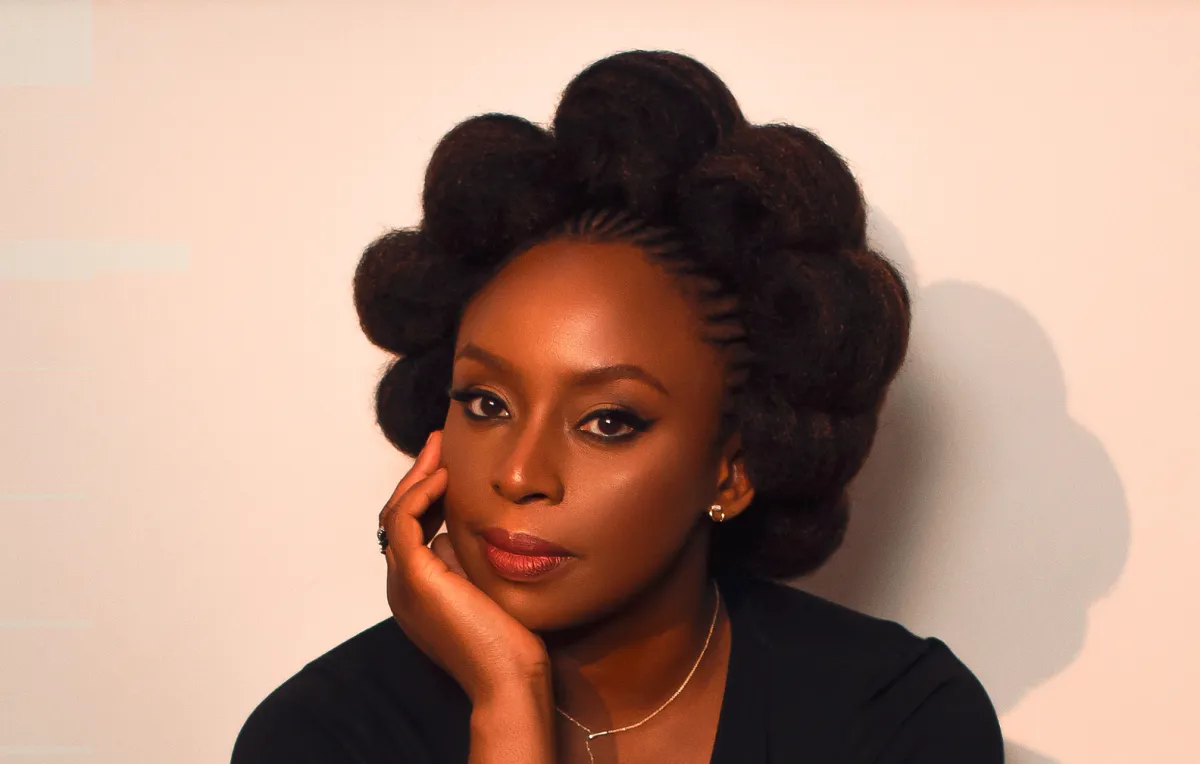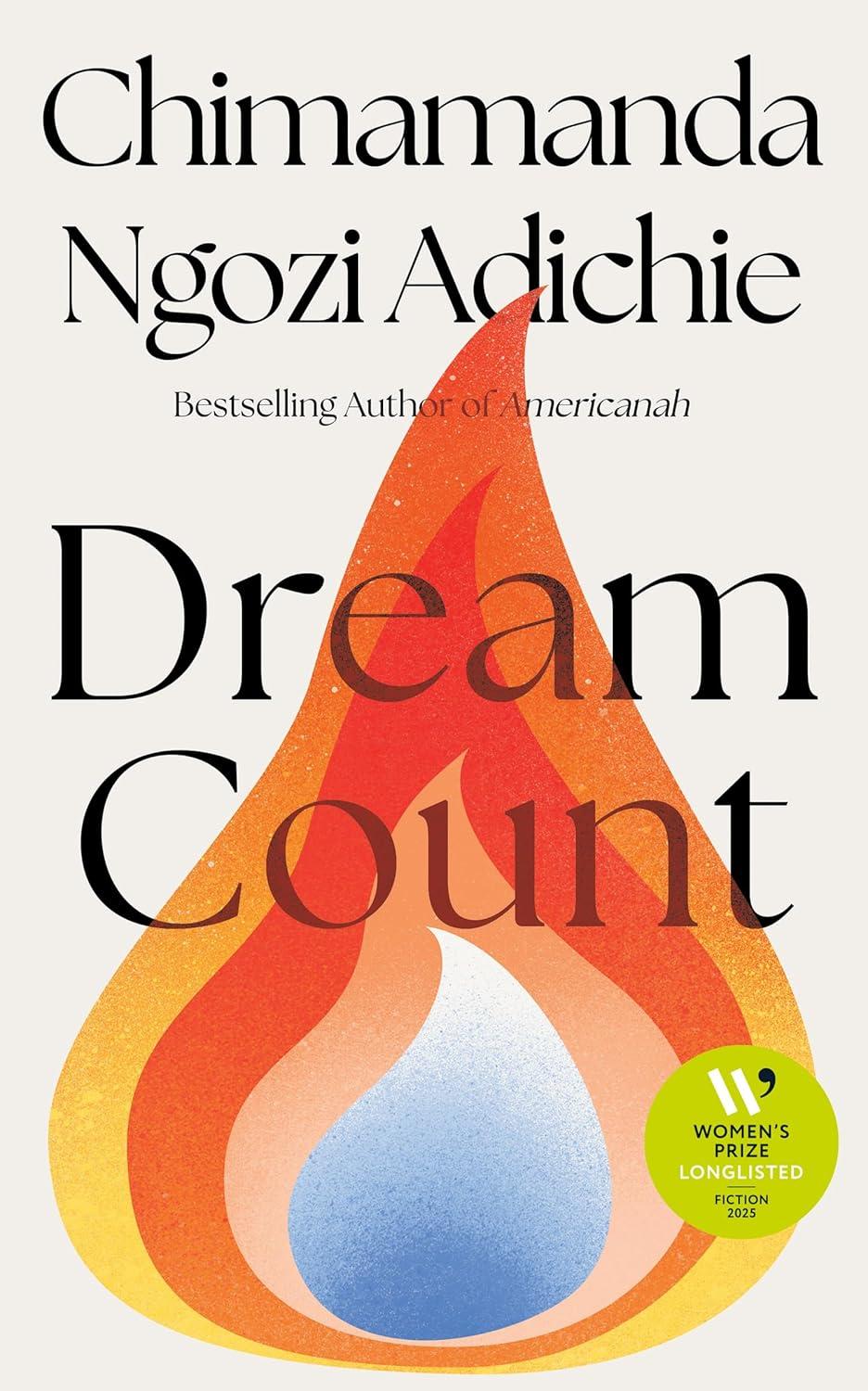Rich women, stupid men

 Knopf
KnopfChimamanda Ngozi Adichie | Dream Count | Knopf | 416 pages | 32 USD
The whole idea of a stereotype is to simplify. Instead of going through the problem of all this great diversity - that it’s this or maybe that - you have just one large statement; it is this. – Chinua Achebe
Less through her first three novels than through her legendary TED talks, Nigerian-American author Chimamanda Ngozi Adichie has become one of the central figures of post-colonial feminist literature. While her dense and superbly composed novels Purple Hibisus (2001), Half of a Yellow Sun (2006) and Americanah (2013) dealt with questions of identity, religion and migration within the context of Western and Nigerian Igbo culture, embedding historical upheavals such as the Biafra War and gender discourses in compact, emotional stories, Adichie began to reorient herself after receiving numerous awards and honours. In TED Talks such as We Should All Be Feminists (2012), which was not only sampled by Beyoncé but also quoted on a Dior T-shirt in 2016, Adichie increasingly portrayed herself as a fashion-conscious activist with pop star qualities.
The culmination and perhaps also the conclusion of this development is her new novel Dream Count, which was published simultaneously in several languages at the beginning of March 2025; an honour received by only a few authors, another recently being Sally Rooney and her novel Intermezzo.
Unlike Rooney, whose explorations of love and life are set solely in Ireland, Adichie's novel is an international book that, like Americanah, is set in both Nigeria and the USA. In her previous book, Adichie was still telling stories about young people on the move, with completely different migration experiences and, above all, about an ultimately fulfilling love story. Now, 12 years later, everything has changed. Not only has Adichie grown older, but her characters have aged with her and their living conditions have changed dramatically. The political and historical circumstances that were always important in Adichie's earlier novels have almost disappeared, aside from the political implications of the Covid pandemic, which forms the historical framework of Dream Count, or a few lessons in sexual corruption. The passage of time is most evident in Adichie's characters - three wealthy women in their 40s who can perhaps best be described as ‘Afropolitans’. A term coined by Taiye Selasi 2005 in her essay Bye-Bye Babar and in 2013 with her novel Ghana Must Go, which refers to those wealthy Africans - or people with roots in Africa - who have studied in America, England or Paris and are at home anywhere in the world. And a woman working in the service sector whose home of origin is also Nigeria, but who couldn't be more different.
Translated with www.DeepL.com/Translator (free version) But they have two things in common: they are all friends and they all have bad luck with men.
Adichie does not weave these stories into a consistent narrative, however, but tells her story from alternating perspectives. Each of the four women - Chia(maka), the travel writer, her old friends Zikora and Omelogor, and Kadiatou, who is employed as Chia's housekeeper - is given "her" story in just under a hundred pages. In a final chapter, it is once again Chia from whose perspective the end of the pandemic and the major dramas in the women's lives are played out.
For Chia, Zikora and Omelogor, these dramas essentially revolve around unrequited love and stupid, inconsiderate or simply ignorant men who neither meet the modern, feminist demands of women nor the demands placed on women by their parents, who still hold Nigerian values. The unfulfilled or tragically fulfilled desire for children is intensively explored through parent-daughter dyads. At the same time, Adichie attempts to emphasise colonial history, for example by having one of Chia's partners, an Afro-American scholar, make the accusation to Chia that her Igbo ancestors very probably sold his ancestors as slaves. But these legitimate historical discourses are thin on the ground and quickly lose their impact due to stereotypical and superficial insights:
"The problem is that many of these White people don't realise we also dream," he said.
I stared at him, astonished. "Yes," I said. "Yes, exactly."
In her new novel, Adichi is less interested in history than in lukewarm love stories, which, despite their abundance, always end tragically for all the women. This is reminiscent of TV series formats such as a Desperate Housewife's and Sex and the City, not least in the repetitive nature of the stories, which lack any ambivalence and are therefore dull in their one-dimensional nature, and especially because the moral of the story is always essentially the same. Adichie has been reiterating this moral since her TED Talk We Should All Be Feminists and its extraction into an essay of the same name in 2014: Dare to be more feminist so that the world can finally change.
However, one rarely believes in her well-off heroines suffering, and their desire for a changed world. What's more, 'money doesn't make you happy' is such a cliché that you don't want to read it on every page of a novel that is over 400 pages long. Adichie does, however, attempt to use the character of Kadiatou to expand the redundant life paths of her wealthy protagonists and creates an underclass figure who not only experiences severe suffering in her native Nigeria, but also in her new home, the USA. Adichie very freely intertwines the story of the chambermaid Nafissatou Diallo, who was sexually abused by the French politician Dominique Gaston André Strauss-Kahn in a New York hotel, with the life story of her heroine. Although this seems like an superimposed foreign element in the narrative and does not even come close to the intensity of Abi Daré's coming-of-age novel The Girl with the Louding Voice , it does finally offer a small spark of the social realism that underpinned Adichie's early novels and which is largely sacrificed here for a story about rich people who, at best, argue with their private chef about the importance of forming a national identity through indigenous cuisine. Or who support their housekeeper in her fight against American lawyers and the lying media. Or who have a child after all, even if the husband doesn't want it. This seems rather outdated in view of the three great waves of the women's movement, especially when phrases appear that can hardly be surpassed in their banality:
"There was no wavering will, no fear. We are in love and then we are not in love. Where does love go when we stop loving?"
The answer is reminiscent of Joseph Conrad and his Lord Jim: "Follow the dream, follow the dream again and again..." In Adichie's case, however, it is an alternative of a different life that should be dreamed of: "BUT SERIOUSLY, don't you ever dream of an entirely different life?" A sentence as important as the title of her novel, which is of course also a subtle allusion to the military term "body count" and is perhaps also intended to make it clear that the sexes are at war and that dreaming is therefore all the more important. However, Adichie's book basically says nothing about what these dreams might resemble. For all the changes in the lives of her heroines, it is not only the vision of Kadiatou and her daughter that ends up being a stale, cowardly, almost kitschy vision of a new life and a new era.
Those longing for more satisfying, exciting and visionary ideas should therefore put Adichie's novel aside and reach for Tlotlo Tsamaase's Afro-futuristic dystopia Womb City, in which a truly post-feminist heroine sets off for new worlds and a refreshingly new way of thinking.



